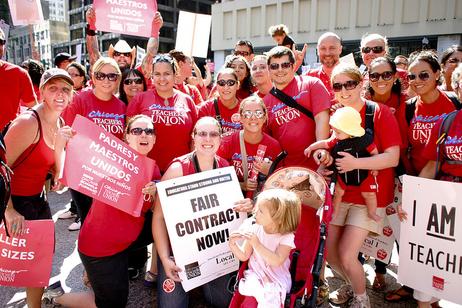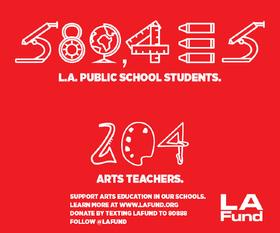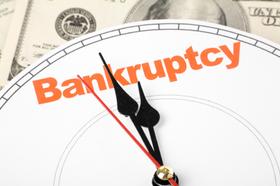After a seven-day strike hit the public school system in the city of Chicago, things appear to be mostly business as usual once again. Students are back in school. Teachers are back in their classrooms. Both the teachers union and the mayor’s office are declaring at least a partial victory in sticking to their guns and hammering out a compromise both sides can tolerate. While the Chicago teachers strike is over by all visible signs, remnants of this latest labor move may have ramifications nationwide that last for some time to come.
Throughout the summer, negotiations continued between the Chicago Teachers Union and school administrators and the mayor’s office. Mayor Rahm Emanuel was pushing for longer school days, hiring autonomy for principals, and a revamping of the teacher evaluation process. Teachers were looking for better pay increases, job security, smaller classroom sizes, and more services for their students. As the summer negotiations wore on, some were hopeful a strike wouldn’t have to happen. Others voiced fears that a strike was exactly where the teachers union was headed.
This video from the Chicago Teachers Union discusses what was learned from the teachers' strike.
Two Points of Contention
When union delegates finally voted to strike right after the start of the new school year, two key issues remained in the balance. The first was autonomy for principals in the hiring process. Mayor Emanuel wanted principals to hire any applicant they chose when openings came available. The teachers union wanted hiring to be done strictly from the pool of displaced Chicago teachers to ensure better job security and opportunities for union members.
The second point of contention was teacher evaluations. Mayor Emanuel, in an ambitious effort at education reform, proposed that half of the teacher evaluations in the school district would be based on students’ scores on standardized tests. Teachers came back with the claim that methodology was unfair, since students from low-income families, living in gang-infested, crime-ridden neighborhoods simply wouldn’t score as well on tests. The union did not believe it was fair to teachers to base their performance ratings on criteria over which they did not have full control.
An Agreement is Reached
After months of negotiations and seven days of a teacher strike, a compromise on these two issues was finally reached, according to NBC News. Both sides agreed to allow hiring autonomy for principals, as long as at least half the teachers hired came from the displaced teacher pool. Teacher evaluations would include student test scores, but those scores would only make up one-third of the evaluation process, rather than the half proposed by Mayor Emanuel. Both sides won a little and lost a little, but the ones that gained the most were the students. They were finally able to return to school.
The Huffington Post reported that union representatives voted to accept the terms of the latest contract offered by Mayor Emanuel and end the strike on September 18. Students and teachers returned to the classroom the following day. A formal vote on the three-year contract that includes all 29,000 members is expected in the next two weeks, according to Time. While the battle may be over for now in Chicago, the impact of the recent strike could reverberate throughout the country for many years to come.
Impact of Chicago Teachers Strike
Chicago isn’t the only city in the country with conflict simmering between teachers and administrators. At the same time Chicago teachers and leaders were hammering out their differences, Boston was involved in a similar battle. Time reports that negotiations have been going on for two years in Bean Town, between the Boston Teachers Union and school administrators. In the newly established contract, school officials were unable to get the longer school day they wanted. Their efforts to eliminate seniority also fell flat.
New Jersey teachers are entering their third school year without a contract, and union leaders are urging members to avoid offering extra time or effort to the job until a compromise is reached and a contract is signed. Similar education issues plague this state, particularly a merit pay system that would grant raises on the basis of teacher ratings and performance.
New York teachers have also been working without a contract since 2007, with major disagreements over how teachers should be evaluated in that state.
In this video, a teacher explains what the teachers' strike meant to him.
Who Won?
In the aftermath of the negotiations, strike, and eventual compromise, has a clear winner emerged from the Chicago experience? The answer seems to depend on who is asked the question. Mayor Emanuel is claiming his own victory, telling the Christian Science Monitor, “For the first time, teachers will have a meaningful evaluation system…Our evaluation system has not changed in 40 years, while our students and the world they live in and will work in has.”
Karen Lewis also feels the voice of the teachers was heard in Chicago through this negotiation process. She was reported saying in the Chicago Tribune, “We feel very positive about moving forward. We feel grateful that we have a united union, and that when a union moves together, amazing things happen.”
Disagreements on both sides may end up in another sticky negotiation process when this contract expires in three years. It may have implications across the country, as teachers' unions and school administrators clash over what real education reform looks like. However, one constant point of agreement remains – kids need to be in school, no matter what the disagreements between the two sides might be.
In this video, Chicago Teachers Union President Karen Lewis discusses the recently-settled strike.
“All our members are glad to be back with their kids,” Lewis stated to the Huffington Post at the end of the strike.
Emanuel also called the first day back for students an exciting one.
“Most exciting because our kids are back and you can see it in their eyes,” Emanuel added.
Questions? Contact us on Facebook. @publicschoolreview















